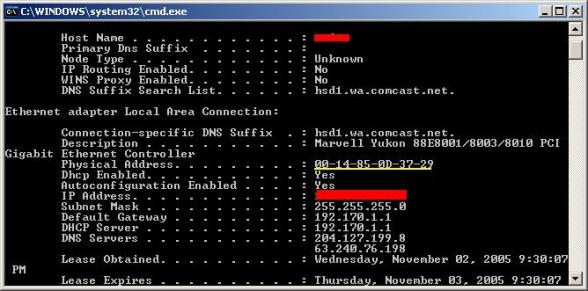


To narrow down if network issue, I would keep one device connected to your network, factory reset the duplicate, and then connect/setup the duplicate and see if network now detects/learns a different MAC address. Short of being replaced, it basically needs to be reflashed. Users can see which MACs are generated for each network in the Wi-Fi scan list, even before joining the network. A new MAC will be used whenever a new address has been generated and the device re-joins the network. With the number of devices you purchased, I would be surprised it they wouldn't make it right for you. Since addresses are generated randomly, it is very unlikely that two devices on the same network will generate the same address. MAC is the address of a node in the physical. Seems like a manufacturing issue/snafu or vendor overlap. The Mac Address comes burned in the NIC, while the IP address is configured based in the network addressing design. If you are sure that it is a stick issue (from the steps above) and not a network issue, then I would report the issue to Roku. This is normally flashed into the bootloader of the stick essentially.
#NETWORK MAC ADDRESS MULTIPLE SERIAL NUMBER#
Ideally, each stick should have own Serial Number and unique MAC. This is causing delays in ARP processing as the MAC addresses are appearing as available on two. and repeats them on the DMZ interface which then makes them reappear on different ports. Then compare this number to what your network is reporting as MAC. It appears that the Fortigate 60E sees mac addresses for Computer 1 and Computer 2 on its LAN interface. You can compare this number to the one Roku is reporting in. I thought the sticks had their MAC addresses on the back of the device. Network attackers could manipulate MAC address and IP address mappings in ARP messages with the intent of intercepting network. I have a live piece of equipment here, Switch 1. On large networks with low bandwidth, multiple ARP broadcasts could cause data communication delays. How Many MAC Addresses can be learned by a Switch Quick answer is, that depends on how much money you spent when you bought the thing, because higherend switches can support more and learn more MAC addresses. Other question is if these devices are reporting same MAC or is your network interpreting the MAC incorrectly. (Choose two.) Manually configuring static ARP associations could facilitate ARP poisoning or MAC address spoofing. So my question is is there a way/solution that I can have all the Roku devices to have their own unique WiFi Mac Address?


 0 kommentar(er)
0 kommentar(er)
